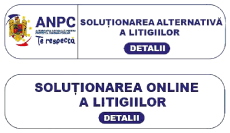Dear friends all over the world,
This week, it is only one year to go to the World Congress in Prague and to the end of my term as the WFSA President.
It is a good time to reflect upon some important achievements from this last year. More information is available through the WFSA Impact Report
World Health Organization:
A separate report will soon be published in Anesthesia & Analgesia (A&A). I would like to highlight a big change from last year. In 2018, we had to take the initiative to meet with ministers of health and other authorities. This time, they came looking for us, to help them make plans to improve anaesthesia services in their countries. Major tools for doing this, are the National Surgical, Obstetric and Anaesthesia plans, which we have been part of developing and to which we have contributed tools such as the Anaesthesia Facility Assessment Tool (AFAT). More than 40 countries are now in the process of developing or implementing national plans.
The updated WHO-WFSA International Standards for a Safe Practice of Anaesthesia are also a game changer. Published for the first time as a joint WHO-WFSA Standards, these provide a powerful advocacy tool.
Global campaigns to prevent international scheduling of anaesthesia medicines:
An important part of what we are doing on the global scene is working with other organisations to prevent international scheduling of essential medicines for our practice, like ketamine and tramadol. Scheduling of these medicines will have dramatic consequences for patients where there are no alternatives available. We also campaign to improve access to opioids where those are not available for those who need it (yet not ignoring the problem of excess access in other parts of the world).
The Utstein Meeting on Metrics and Reporting Criteria for Surgery, Obstetrics & Anaesthesia Patient Safety:
A special meeting took place in June 2019. Initiated by the WFSA, this meeting brought together 38 medical experts, the WHO, UN and World Bank together to review and refine the Lancet Commission on Global Surgery’s (LCoGS) metrics:
- access to care
- surgical volume
- anaesthesia-surgery-obstetrics workforce
- perioperative mortality
- impoverishing and catastrophic expenditure
This is important for many reasons, not least that we risk losing visibility and influence in the UN and World Bank if data is not collected and updated regularly. The meeting was funded by a generous contribution from the Laerdal Foundation.
Finding solutions to global workforce shortages is not easy:
In January, we set out some ideas in an opinion piece entitled “A Global Anaesthesia Training Framework”, published in A&A. We received limited feedback from member societies and, as a result of this feedback, have decided to discontinue the ATF initiative.
Instead we are in the process of forming a working group, led by members of the WFSA’s Education Committee, which will seek to define a global set of core competencies for safe anaesthesia provision. This group will analyse existing international curricula and related surgical documents and produce a draft document in early 2020. Again, we will seek input from member societies.
WFSA is involved in several training programmes ourselves, and in this letter, I would particularly like to highlight the “Fund a Fellow” initiative
Working primarily through a mentoring approach colleagues are trained and return home with improved clinical and leadership skills to help build anaesthesiology in their region. You are invited to help us fund this successful initiative through a Fund a Fellow donation
The WFSA backbone is the National Societies, in high, middle and low-income countries alike:
Your input/contribution is crucial for the way we develop, so please help us impact the future. Some National Societies have also asked us for support to develop their own structure and function. As a response to this, we have produced this guidance Characteristics of a Well-Functioning National Society
We will soon be sending out calls for nomination for the next term’s officers, Council and Committees:
Please stay tuned and identify candidates to various positions from your national society.
I would also like to encourage you to send any feedback and suggestions to improve and develop what the WFSA is doing to my personal email address mellin.no” target=”_blank”>jannicke@mellin.no
I am so grateful and privileged to serve as your President, and I hope that this coming year, we will be able to make good and steady progress until it is time for me and this Board to hand over the baton to the next team. I thank you every day that you have given me this opportunity to do what I can to achieve the WFSA Vision “Universal access to safe anaesthesia”, and our Mission “To unite anaesthesiologists around the world to improve patient care and access to safe anaesthesia and perioperative medicine.”
Please feel free to share my letter with those you find relevant.
Yours sincerely,
_______________________
Dr Jannicke Mellin-Olsen
President
World Federation of Societies of Anaesthesiologists (WFSA)

